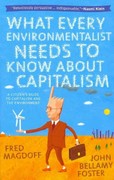Question
WEEK 3 Question 1 Which of the following is NOT an advantage of the clearinghouse system relative to a bilateral system of bank payments? a)
WEEK 3
Question 1
Which of the following is NOT an advantage of the clearinghouse system relative to a bilateral system of bank payments?
a) Clearinghouses do not permit negative balances intraday
b) During financial crises, clearinghouses are able to create additional reserves
c) Payments are guaranteed by all clearinghouse members
d) In a bilateral system, failure of one bank to settle with its correspondents can have a ripple effect by making it impossible for the other bank to settle also
e) Banks net payments across their various correspondents
Question 2
All of the following are accurate descriptions of dealers in the Fed Funds market, EXCEPT...?
a) Dealers match buyers and sellers without taking positions on their own balance sheets
b) Dealers profit by exploiting mismatches between demand and supply
c) Dealers profit from the spread between bid and ask price
d) Dealers make markets by bridging across time, intra-day and cross-day
e) Dealers expand and contract their balance sheets during dealing operations
Question 3
Which of the following is a property of Fed Funds?
a) Intra-day credit
b) Interbank credit
c) Liability of the Federal Reserve
d) International reserves
e) Asset of the Federal Reserve
Question 4
All of the following statements about bank payment systems are true, EXCEPT....?
a) In an ideal credit payments system, banks with positive settlement balances lend to banks with negative settlement balances
b) The Federal Reserve System operates closer to the ideal credit payment system than the ideal money payment system
c) Elasticity in the wholesale money market provides elasticity in the retail payments system
d) The use of correspondent balances allowed banks to economize on reserve holdings
e) When a bank borrows in the Fed Funds markets, the balance sheet of the Fed expands
Question 5
A customer of Bank A orders payment to a customer of Bank B, but Bank A does not have sufficient reserves on hand to make the payment. Which of the following methods would NOT be used to make the payment?
a) Bank A borrows from Bank B by issuing a correspondent balance to the credit of B
b) Fed credits B and debits A, for settlement at the end of the day
c) Clearinghouse credits B and debits A, for settlement at the end of the day
d) Bank A draws down its correspondent balances at Bank B
e) Issuing bank notes
Question 6
All of the following statements about the operation of the bank clearinghouse association under the national banking system (before the Fed) are true, EXCEPT...?
a) The clearinghouse was unable to provide elasticity for its members during a crisis
b) The clearinghouse allowed banks to economize on their holding of reserves
c) The clearinghouse served as lender of last resort during times of crisis
d) The creation of clearinghouse loan certificates during times of crisis had the effect of increasing bank reserves
e) Surplus banks could destroy the clearinghouse by cashing their clearinghouse balances for gold
Step by Step Solution
There are 3 Steps involved in it
Step: 1

Get Instant Access to Expert-Tailored Solutions
See step-by-step solutions with expert insights and AI powered tools for academic success
Step: 2

Step: 3

Ace Your Homework with AI
Get the answers you need in no time with our AI-driven, step-by-step assistance
Get Started


